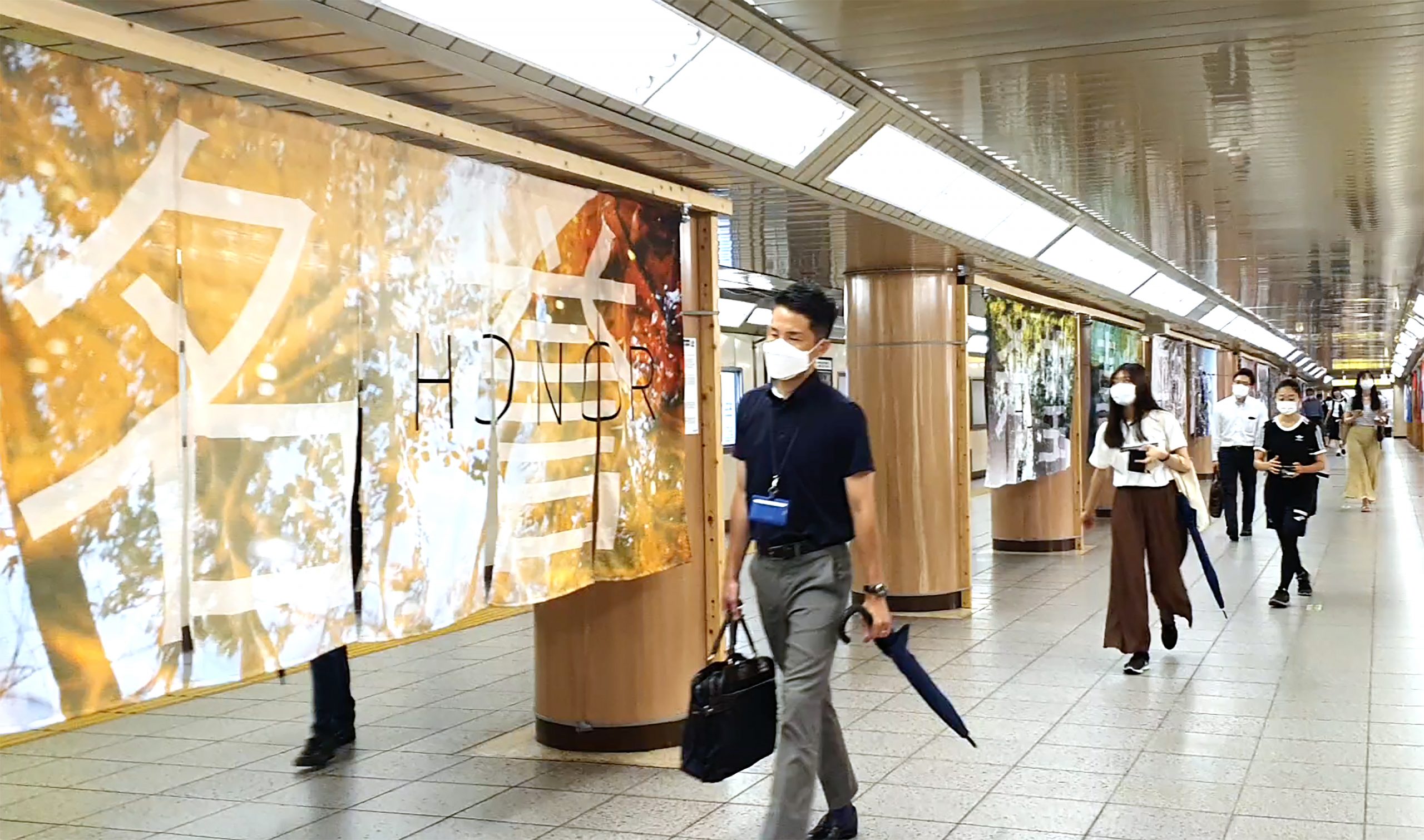
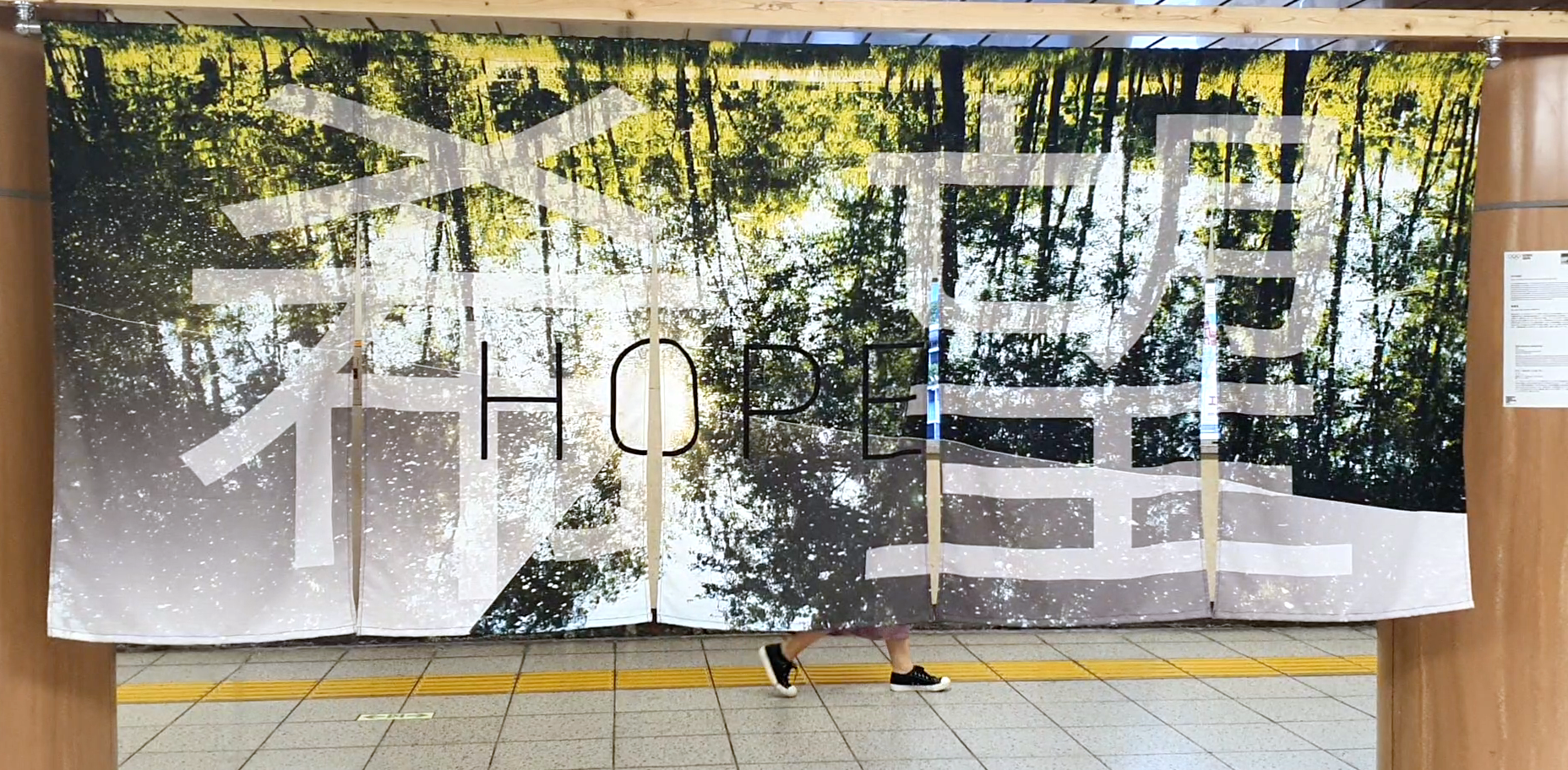
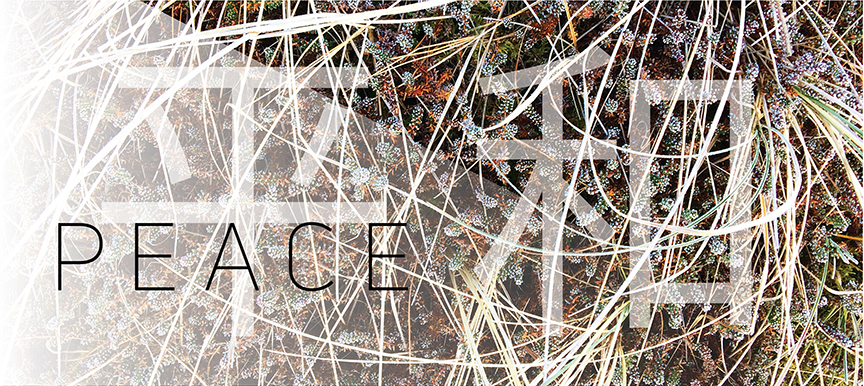
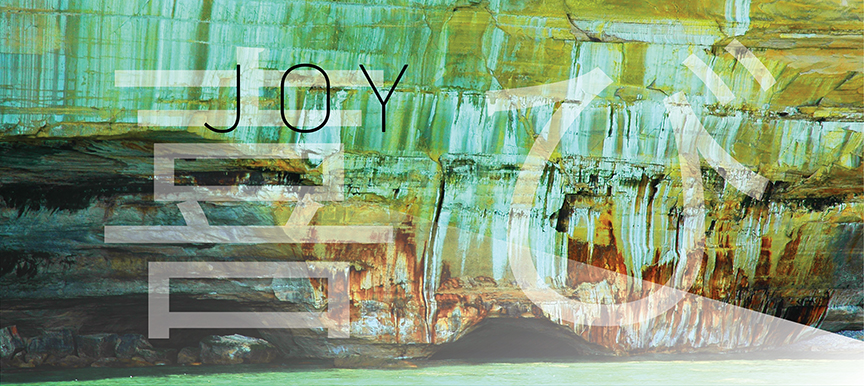
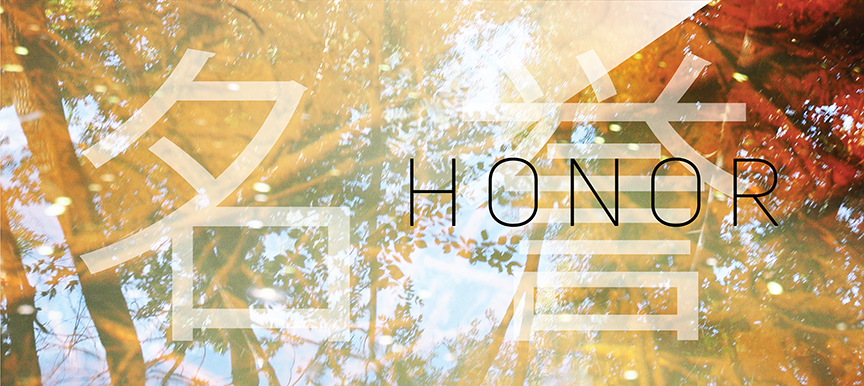
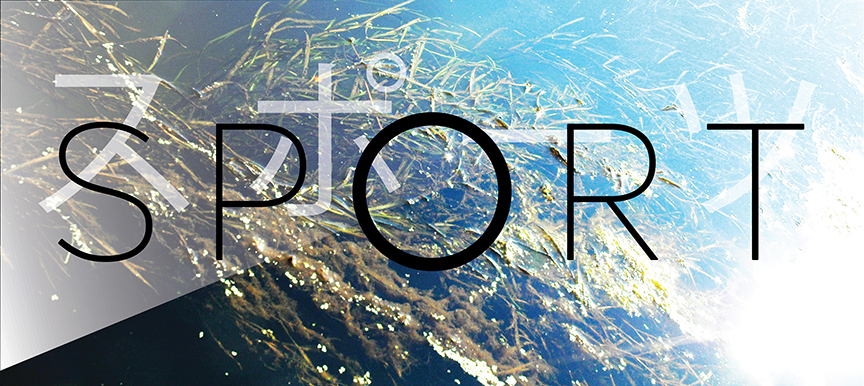
Client: The Olympic Foundation for Culture and Heritage
Location: Tokyo, Japan
Completion date: 2021
Project Team
Designers
Kelly Salchow MacArthur
Elevate Design
Project Manager
Irena Koblar
Olympic Foundation for Culture and Heritage
PR & Communications Manager
Tina Sharma Tiwari
Olympic Foundation for Culture and Heritage
Printer
Hiroki Nagakawa
Dentsu LIVE, Inc.
Overview
The Olympic Agora featured art and design from diverse cultures during the Tokyo 2020 Olympic Games, to bridge sport and creativity, in admiration for athletes and in reverence for global harmony. Five Olympians and one Paralympian were selected to create artworks that embodied global solidarity. As a 2-time Olympic rower, and graphic design educator and practitioner, my series of 5 Noren curtains (traditional Japanese curtains commonly hung in entryways) represents our shared experiences through sport and the Olympics. The curtains hung before, during, and after the Games in the Nihonbashi underground passageway. Given the period of uncertainty and challenge brought on by the pandemic, these Olympic Games were an especially poignant opportunity for the international community to celebrate optimism, hope, resilience, and determination.
Goals
The Olympic Foundation for Culture and Heritage established the Olympic Agora to celebrate the connections between sport and creativity. This cultural hub enabled the Olympic movement to engage with the public during the 2021 Tokyo Olympic Games through a free and accessible art and design installation.
Process
These Noren curtains attempt to capture many things simultaneously. They represent micro and macro moments that may occur during the Japanese practice of shinrin-yoku (known as forest bathing in English)—calming, balancing, healthful, hopeful, and rich with wonder. The inherent need of humans to connect with the natural environment is a thread woven through all cultures. These curtains visualize parallels between our shared experiences with nature, and our collective experiences through the Olympics. The typography merges English and Japanese characters that interact with the slits in the fabric. The curtains were printed locally by a master Japanese printer.